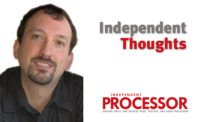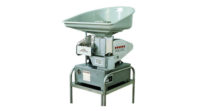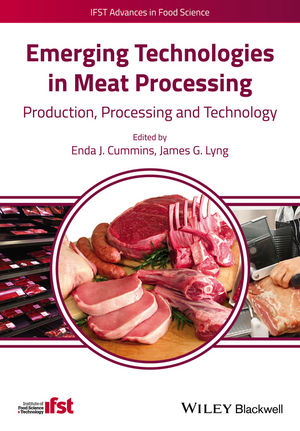Tetra Pak North America mounted a Davos-style summit for its customers in Washington, D.C. in January. The company’s mission: to help CEOs in cast a new eye on their business models in these tough economic times. And to explore these insights, key global thought leaders, including Steven Rattner and John Kao, were asked to address the issue of cost competitiveness in a fluctuating economy.
The conference, “Redefining Reality For Sustainable Profit Growth,” attracted nearly 100 North American CEOs and C-Suite executives to explore a range of new ideas and initiatives to stimulate long-term growth, and also keep our companies healthy and exciting so talented employees won’t jump ship. But one basic premise prevailed: we must embrace uncertainty and strive to grow through it.
Borrowing a quote that became a mantra for Thomas Edison’s company, Tetra Pak highlighted the need to “continue to perform while transforming.” The company noted that it is important to motivate teams, focus on the external marketplace, turn up the innovation throttle, never lose sight of the fact that a superior supply chain is needed, perform and execute flawlessly and always consider the customer.
Rattner, the “car czar” who oversaw the successful General Motors bailout during President Obama’s first term, talked about cost competitiveness, the importance of the auto bailout and how companies can benefit by looking at themselves through the eyes of a private equity firm. In order to thrive, companies must aggressively manage costs, focus on creating a world-class supply chain while keeping costs at the lowest possible level and subject all capital allocation decisions to rigorous ROI analysis.
Rattner, who is currently chairman of Willett Advisors LLC, the investment firm that manages New York Mayor Michael Bloomberg’s personal and philanthropic assets, reviewed GM as a case study, highlighting how the carmaker’s break-even changed after restructuring. “You have to have a culture that is vigilant around costs,” he said. “GM was sloppy and lost its edge.”
Cutting out excesses at GM fell, in part, to Hilco Trading, one of the world’s largest and most respected asset valuation advisories and the firm responsible for liquidating 100 million square feet of excess GM and Chrysler production facilities in each automaker’s respective bankruptcy. Hilco works with ‘leading edge’ and ‘end of life’ companies of every size in every business sector, providing a unique perspective on success factors and failure traps, and is currently liquidating assets, including intellectual property, for Hostess.
With their broad perspective, Hilco senior advisor Arnold Dratt and CFO John Chen were able to provide compelling case studies of companies that have hit speed bumps and then successfully restructured. They emphasized that companies must actively invest in productivity while vigilantly and aggressively eliminating or avoiding excess capacity, and noted that achieving cost competitiveness is a continuous process. Focus on the long-term impact of decisions on enterprise cost reduction and productivity-related capital expenditures. The price/value equation to the customer is the key to cost competitiveness.
Their most salient recommendations were to kill complacency by embracing change; understand and support your company’s culture; and ensure that your decision-making and support processes support each other.
Renee Mauborgne, INSEAD strategy professor and co-author of the award-winning international best seller Blue Ocean Strategy, discussed how businesses are facing more competition than ever and creating diminished brand loyalty and commoditized product lines. She offered critical strategies that businesses can use to create healthy, sustainable and profitable growth.
“By pursuing both differentiation and a low cost supply chain, Blue Ocean strategy seeks to break the value-cost trade-off of conventional strategies and create a leap in value for both buyers and the company. This is achieved by reconstructing market elements across conventional boundaries of competition to create new market space, thereby unlocking new demand, creating tidy profits and generating a growth momentum for the company that is healthy and sustainable,” explained Mauborgne.
In all of these strategies, innovation is core, a point driven home to the CEOs by Kao, best-selling author of Innovation Nation and chairman of the Global Advisory Council on Innovation of the World Economic Forum, as he addressed how America is losing its innovation edge, why it matters and how to get it back.
Taken together – innovation and the approach of looking at the cost competitiveness through the eyes of a private equity company—these thought leaders gave CEO s an important new perspective to achieve sustainable profit growth. Now it is up to all of us to follow Thomas Edison’s lead and “continue to perform while transforming.”







